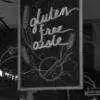-
Welcome to Celiac.com!
You have found your celiac tribe! Join us and ask questions in our forum, share your story, and connect with others.
-
Celiac.com Sponsor (A1):
Celiac.com Sponsor (A1-M):
-
Get Celiac.com Updates:Support Our Content
Help..please
-
Get Celiac.com Updates:Support Celiac.com:
-
Celiac.com Sponsor (A17):
Celiac.com Sponsor (A17):
Celiac.com Sponsors (A17-M):
-
Recent Activity
-
- knitty kitty replied to xxnonamexx's topic in Post Diagnosis, Recovery & Treatment of Celiac Disease21
My journey is it gluten or fiber?
I take both Benfotiamine and TTFD. You might want to start with the Benfotiamine for a few days and then add in the TTFD. You can look for NeuroMag (Magnesium Threonate). A magnesium glycinate is fine, too. Doctor's Best is a good brand. Don't take more than 300mg total per day of magnesium or it may have a laxative effect. Be sure... -
- xxnonamexx replied to xxnonamexx's topic in Post Diagnosis, Recovery & Treatment of Celiac Disease21
My journey is it gluten or fiber?
Life Extension Benfotiamine with Thiamine has 100MG of Ben and 25 of Thia..... Do you think this is the one I should take or Objective Nutrients Thiamax (TTFD) which has 100MG Thiamine. How much magnesium should I look for? I take the womens 50+ multivitamin since consumerlabs stated and tested that it has the right amount of vitamins and not too much for... -
- Oliverg posted a topic in Post Diagnosis, Recovery & Treatment of Celiac Disease0
Glutened
Hi all I’ve been celiac for 4 years now, I’ve done pretty well to avoid it thus far. Last night I took the wrong pizza out of the freezer and ate the whole lot!! The non gluten and gluten pizza boxes are both very similar. 2 hours later I was throwing up violently on my hands and knees over the loo. .horrendous stomach pains, My hair was wet fro... -
- knitty kitty replied to xxnonamexx's topic in Post Diagnosis, Recovery & Treatment of Celiac Disease21
My journey is it gluten or fiber?
Yes, do take your B Complex with Benfotiamine or Thiamax. Thiamine interacts with each of the other B vitamins in the B Complex to make energy and enzymes, so best to take them together earlier in your day. Taking them too close to bedtime can keep you too energetic to go to sleep. The Life Extension Benfotiamine with Thiamine is Benfotiamine and... -
- xxnonamexx replied to xxnonamexx's topic in Post Diagnosis, Recovery & Treatment of Celiac Disease21
My journey is it gluten or fiber?
I looked further into Thiamax Vitamin B1 by objective nutrients and read all the great reviews. I think I will give this a try. I noticed only possible side affect is possibly the first week so body adjusts. Life Extensions carries Benfotiamine with Thiamine and the mega one you mentioned. Not sure if both in one is better or seperate. some reviews state...
-




Recommended Posts
Archived
This topic is now archived and is closed to further replies.